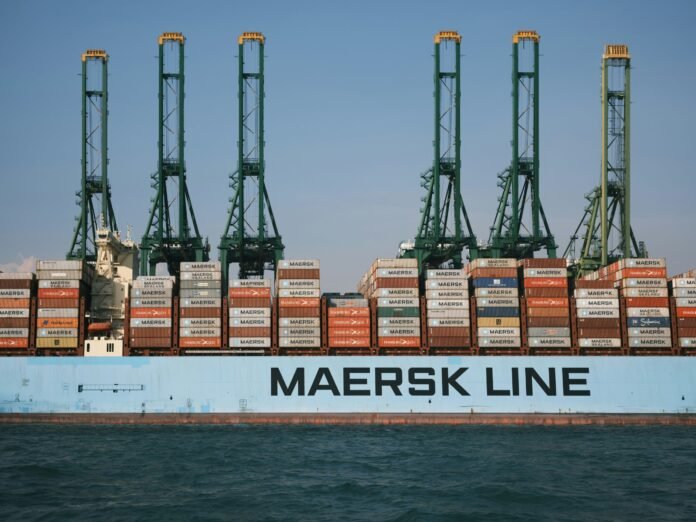The era of frictionless globe trade seems to be behind us.
But could Southeast startups benefit from the new world of tariff uncertainty?
Since early April of 2025, tariff rates have fluctuated and headlines surrounding globe trade realities have been moving at warp speed, even for those who closely watch the space. Businesses across America are scrambling to redesign their global supply chain and figure out what it means for how they source, store, and sell products.
Now because of its strategic location and industrial infrastructure, the Southeast has emerged as a hub for innovation in a world grappling with unprecedented tariff volatility with supply chain, logistics, warehouse, and procurement tech platforms.
A Surge In Demand, New Opportunities
A common theme among startup leaders we spoke to is that no one really has a full grasp on what the future of global trade will look like. Matt Fain, CEO of Atlanta-based PopCapacity, said that “fear and unknown is driving a lot of the industry right now.”
PopCapacity, which uses artificial intelligence to match companies with available warehouse space, has seen a surge in demand as overseas companies abandon drop-shipping models to establish U.S. inventory bases.
Similarly, Nashville-based Third Person is seeing ways to capitalize on the new global trade realities.
“[Tariff changes] are forcing brands who want to do business in the United States to actually have a physical warehouse in the United States,” said Matt Herz, who describes his company as “a dating app for brands looking for third-party logistics providers.” The platform has attracted nearly 1,000 brands, backed by executives from BarkBox, Shopify, and logistics firm SEKO.
The procurement software space is experiencing similar changes and opportunities, says Anders Lillevik, CEO of Atlanta-based Focal Point. Lillevik said his platform has seen increased demand from procurement leaders who recognize the inadequacy of existing tools.
“Procurement teams are being asked to deliver certainty in a world defined by volatility,” Lillevik told Hypepotamus. “Shifts that once took months now happen overnight, and most teams are flying blind with outdated systems.”
Focal Point’s platform uses AI to model different tariff scenarios in real time and recommend alternative sourcing strategies. The startup has seen particularly strong adoption from industries with complex, globally exposed supply chains, be it manufacturing, automotive, and consumer electronics.
E-Commerce Realities
The complexity extends to e-commerce platforms, where millions of individual sellers are grappling with tariff uncertainty. Ron Earley, founder of software company Greywolfe Investing, which serves Amazon sellers, said that “tariff uncertainty could be a silent killer in eCommerce—especially for sellers relying on international operations,” Earley said. “One policy change and suddenly your margin disappears.”
Greywolfe has responded by building what Earley describes as “flexibility into every layer of our operation—from sourcing to capital allocation—so when volatility hits, we pivot fast and protect profit.”
The company is developing what it calls “the Shopify-like infrastructure Amazon never provided,” helping sellers navigate compliance requirements while managing supply-chain complexity.
How Local Businesses Are Adjusting
For brands caught in the global trade transition, the impact has been immediate. Matthew Tesvich, founder of consumer products company Skunk Skin, said tariffs have created “significant cost volatility” that forces difficult decisions about pricing and sourcing.
“Even a small increase in landed costs can have a major impact on our margins, especially as a growing CPG brand. The uncertainty has made forecasting and pricing more difficult — we’ve had to build in more buffers and contingencies than ever before,” Tesvich added. “We’ve adjusted pricing on select projects and collaborations to reflect rising landed costs. Interestingly, we’ve also seen a ripple effect domestically — with many U.S. suppliers increasing prices in parallel with international tariff impacts. Internally, we’ve strengthened our financial modeling to account for different tariff scenarios and improve cash flow planning.”
Some companies made costly bets on domestic manufacturing before the tariffs dominated headlines of 2025 hit and are now seeing those investments pay off. Lindsay deOliveira, founder of Columbus, Georgia-based baby products company Soothe Beginnings, chose to manufacture entirely in the U.S. despite significant cost disadvantages.
“The decision nearly broke the business. I could have launched 18 months earlier if I’d gone overseas,” DeOliveira said. “But I stuck with it and am so glad (given what we know now) that I did…because we’re built here, we’re protected from that volatility—and we can continue pricing based on quality, not reactionary costs,” she said.
Consumer behavior is also shifting in ways that benefit domestic manufacturers. DeOliveira said parents are actively seeking American-made baby products driven by trust concerns as much as tariff considerations.
“Made in the USA now feels like a safety statement, not just a manufacturing detail,” she added.
—
Photos from Unsplash







